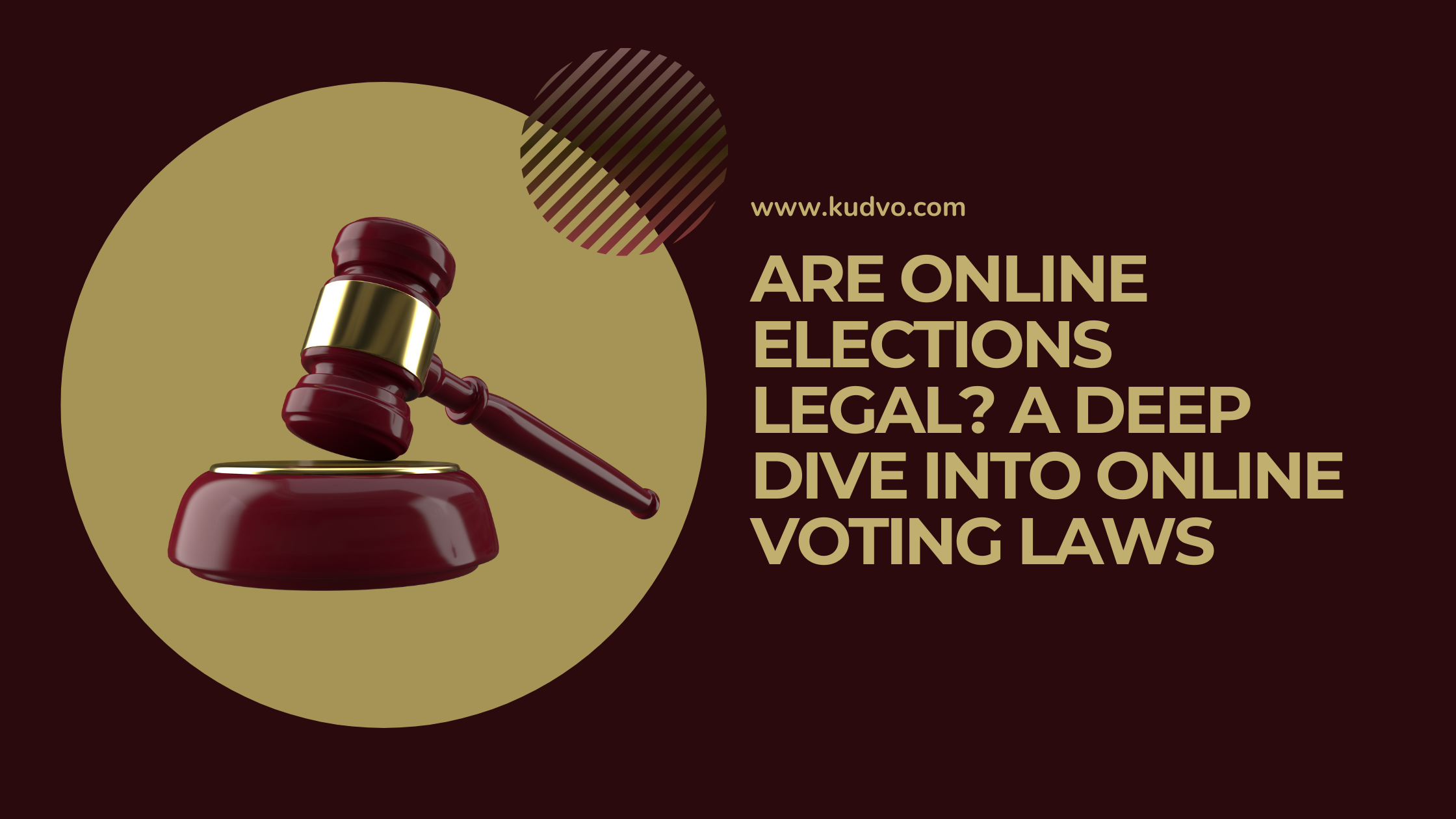Are Online Elections Legal? A Deep Dive into Online Voting Laws
Introduction
Thinking of moving your elections online? You're not alone.
From HOAs to nonprofits to professional associations, more organizations are turning to online voting for convenience, engagement, and speed. But a common—and critical—question remains:
Is it legal to hold elections online?
The short answer is: Yes—but it depends. Online voting legality varies based on your jurisdiction, organization type, and internal governance rules. In this blog, we’ll explore the legal landscape of online elections and what you need to know to run a compliant, defensible vote.
By the end, you’ll have a clear understanding of:
Where online voting is legally recognized
What regulations affect your election
How to ensure your process is secure and valid
(This post is brought to you by Kudvo, helping organizations run secure and compliant online elections.)
1. Online Elections Are Legal—But Context Matters
Online elections are increasingly recognized across sectors—but there’s no universal law that covers all organizations. The legality depends on several key factors:
Factors that determine legality:
Your organization’s legal status (e.g., nonprofit, union, HOA, corporation)
Your governing documents (e.g., bylaws, charters, constitutions)
Your geographic location (state, province, country laws)
Example:
In the U.S., Delaware law allows nonprofits to vote electronically, while some states require paper ballots unless bylaws state otherwise.
Tip:
If your bylaws don’t mention electronic voting, you may need to amend them before switching to an online platform.
2. Common Regulations by Organization Type
Let’s take a closer look at how online voting laws affect different types of organizations:
Nonprofits & Associations
U.S.: Many states allow e-voting if the bylaws permit it.
Canada: Federally incorporated nonprofits can use electronic means under the Canada Not-for-profit Corporations Act.
Must ensure fair access, proper notice, and accurate recordkeeping.
HOAs (Homeowner Associations)
Often governed by state-specific HOA laws.
Some states (e.g., Florida, California) allow online voting with notice and proper opt-in procedures.
Unions & Labor Groups
U.S. unions are regulated by the Labor-Management Reporting and Disclosure Act (LMRDA).
Online voting is allowed if secure, anonymous, and authorized by the constitution or bylaws.
Government Elections
Still limited in many countries due to security and privacy concerns.
Estonia is a notable exception—it’s been running nationwide internet voting since 2005.
3. Legal Requirements for Compliance
Even if your organization is allowed to vote online, certain legal principles must be upheld to ensure compliance and legitimacy:
Key requirements:
Member Notification: Clear and timely notice of the vote.
Voter Authentication: Verifying each voter’s identity securely.
Ballot Integrity: Protecting against vote tampering or duplication.
Anonymity (if required): Ensuring private voting when necessary.
Auditability: Keeping a verifiable record of the election process.
Case in point:
An HOA in California had its election results voided when it failed to offer a paper ballot option alongside its online system—violating state law.
That’s why it’s important to choose a platform like Kudvo, which is designed to meet legal standards for different organization types.
4. How to Ensure You’re Legally Covered
Want to stay on the right side of the law while benefiting from online elections? Follow these best practices:
Online Election Legal Checklist:
✅ Review your bylaws—do they allow for online or electronic voting?
✅ Check your state/provincial laws—are there any restrictions?
✅ Amend your governance documents, if necessary.
✅ Choose a secure, compliant online voting platform.
✅ Ensure clear documentation and voter communication.
You can also consult legal counsel or use services like Kudvo that offer support in navigating voting regulations across regions and sectors.
Conclusion
Online elections are not only legal in many places—they’re quickly becoming the norm. But legality hinges on doing things by the book: understanding your jurisdiction, respecting your bylaws, and using a platform that supports compliance and security.
To learn how Kudvo helps organizations run secure, compliant elections, visit www.kudvo.com.
